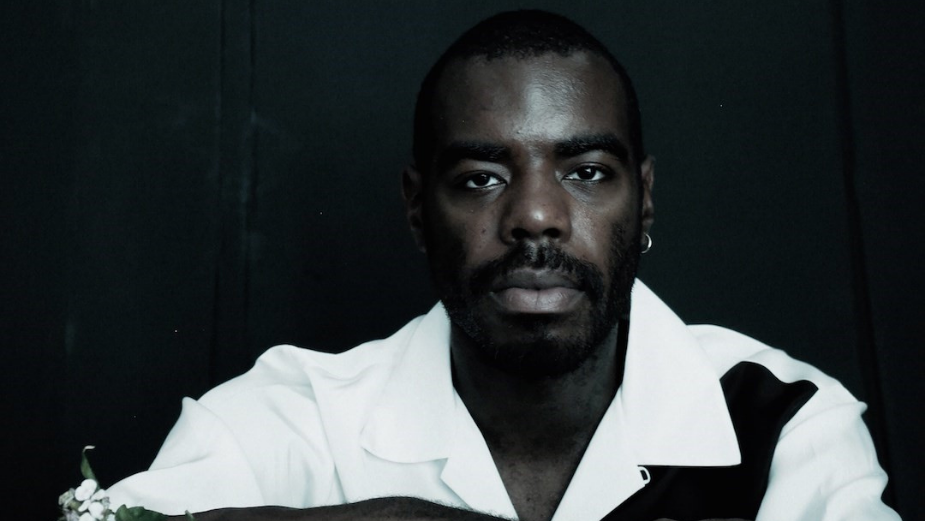
The Directors: Stephen Isaac-Wilson on How Creative Execution Benefits from Open-Mindedness

LBB> What were your influences growing up and how did they help shape your creative voice?
LBB> Could you tell us a bit more about your background in journalism; how has this shaped your creative approach to film?
LBB > What type of brief are you most excited by?
Stephen> I am drawn to things that are about human connection and I like briefs that strive for honesty. My favourite briefs are those that permit space for exploration: I want to create space that allows us to think or ponder, to realise something we didn’t know or understand before. I have a deep curiosity about hearing from a wider perspective outside of myself. As a director, the fact I can choose who to make films about and what stories to shed light on, constantly learning and hearing from others, is the most amazing thing about the experience.
LBB> The style of a film changes brief by brief, but how would you underpin your general visual style? Are there certain factors that you could pinpoint as a signature for you?
Stephen> I try not to restrict myself visually but I often like things to feel juxtaposed. For example, if the imagery is calm , I would maybe like the music to feel hectic or hypnotic. I like shooting in nature but I also like building sets. I like things which feel whimsical and ethereal, incorporating elements of dance which feel playful. Other times I like things to feel intense. These decisions are never super conscious, rather just how it feels is the best way to tell the story. I was recently diagnosed as autistic, and I think that feeds a lot into how I see and present things. My visual style is constantly expanding and changing, and I feel very lucky in terms of how much freedom I've been granted with most projects.
LBB> How important is the role of colour and grade in the overall look and feel of a film?
Stephen> I see it as an ongoing conversation. There is consideration of colour and texture and different palettes but I’m not a director who says: “This has to be graded by X person and the grade has to be like this.” I definitely have a visual language but I’m more focused on the best way to tell the story.
For example, my piece with Ib Kamara for VOGUE Italia was the first time I'd done a really intense grade on a project. The colours are very high contrast, the skin is rich in tone which felt right because the project was about sex, seduction, and it had an otherworldly element. But the connection I have with the subject, and the reasons we've chosen to do the project, is more important than grading higher or specific colours: the visuals have to feel like the best way to tell the story.
LBB> How do you use things like colour and grade to accentuate your vision?
Stephen> I like to use a soft pastel grade but sometimes I like the idea of having a really intense grade. I did a project with Griff and in the references I had late 1950s inspired technicolour films and the grade was very intense, so there’s got to be a reason to do it. It’s about knowing what is best for that particular project, and having that flexibility and confidence within myself. It's not about thinking “I'm going to make sure the colours are the same because I want people to be able to instantly identify that this is mine.” Thinking like that feels quite restrictive, that’s not freedom for me. I feel more freedom when I am being open minded with the colours and grades I can use.
LBB> You’ve directed music videos for artists like Griff and Kaytranada, how do you find these projects, compared to commercials or short films?
Stephen> I’ve always felt free to approach commercial work, passion projects and music videos, with the same intentions. I work hard, think about things deeply and seldom make rash decisions. I will consider things thoroughly during the research stage, whatever the project, constantly asking myself: “What is the intention?” I’m really excited about how I can expand my filmic vocabulary, but right now I enjoy using the bandwidth of the story in the most authentic way.
LBB> If you had to strip it all back and look at each element of directing, what do you enjoy the most?
Stephen> In life, and even surprisingly as a director, what I love the most is having my mind changed on something. It doesn't happen as often as I wish but when it does, it presents me with new and exciting chances to see things differently. I try to explore new ways to connect with people who are unlike me, through my work, which means I'm constantly trying to hear perspectives outside of my own experience.
I enjoy working out how to tell a story that is somewhat niche but has the potential to be universally connected with. A huge aspect of my films is casting and who we choose to turn the camera on. When you have subjects who are being vulnerable on camera you must stand with those people and their message, you want the best for them.
LBB> What insights can you draw from contemporary culture that you feel are going to shape the future of film?
Stephen> Social media has changed the culture, there are so many visual ways to tell a story these days, which is exciting. I like the idea of all the opportunities social media presents in contemporary culture because, in my experience, life is about taking advantage of opportunities. The opportunities I’ve been afforded have informed and shaped me. Blending the skills I learnt during these opportunities, with my own life experiences, has allowed me to create work about queerness, race, and sexuality, plus other perspectives outside my own narrative. If you’ve never done something before but someone is giving you an opportunity to do it that totally changes things.













